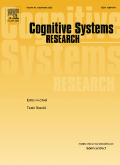Intelligent technologies to optimize performance: Augmenting cognitive capacity and supporting self-regulation of critical thinking skills in decision-making
The purpose of the present paper is to (a) discuss how intelligent systems can augment cognitive capacity, and through self-regulation, assist learners to engage in critical thinking and (b) provide an example that highlights the information-rich context of the work environment and the role of self-regulation in working in partnership with technology to achieve peak performance. Self-regulation from a social cognitive perspective is conceptualized as a fluid, cyclical process whereby learners use externally provided or self-generated feedback to evaluate and adjust their learning strategies. With advances in technology, this paper attempts to illustrate how workers in jobs of the future will be supported in new ways to analyze data, make interpretations and draw inferences, evaluate situations, and make decisions within a work context before, during, and post-work. Educational implications will be discussed.

